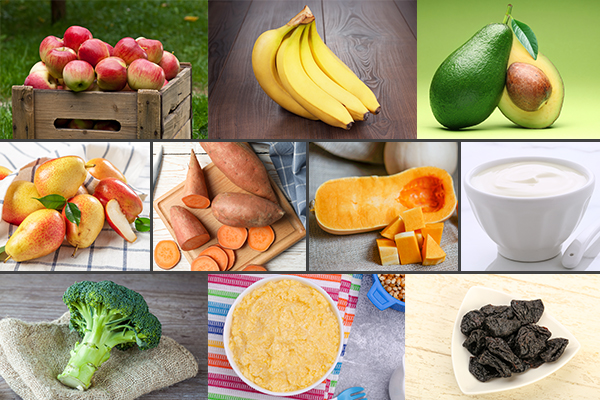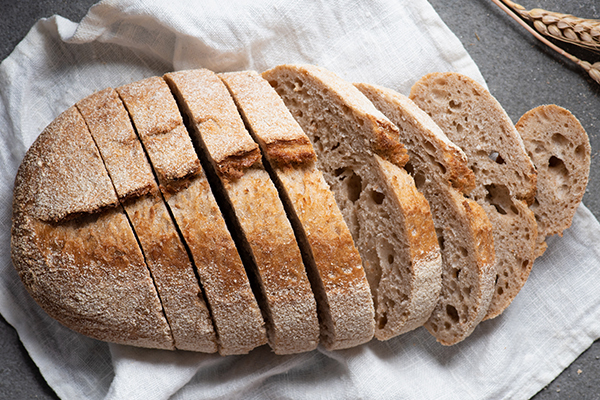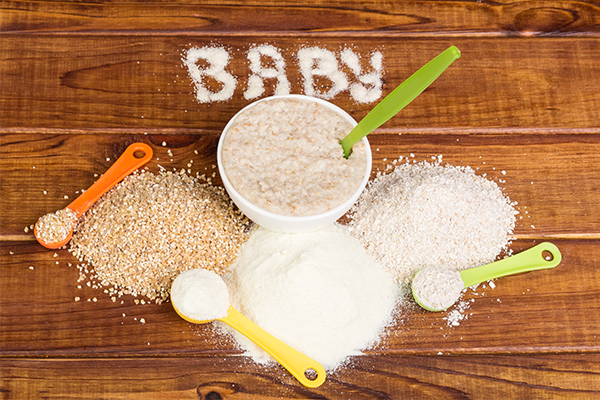In this article:
While infants derive the necessary nutrients from breast milk, they can be gradually shifted to eating solid foods around 6 months of age. These foods are usually in a mashed, liquid, or soft form.

Plan the Feeding Schedule
At the start, solids can be offered once or twice a day. Parents can slowly increase the number of feedings over time.
Speak to your pediatrician about when it is appropriate to start solids, as there are developmental signs of readiness that you’ll want to wait for in order to safely introduce solid foods.
In the beginning, you’ll want to offer solids after offering breast milk or formula first. Your baby will still rely on breast milk or formula for most of his or her nutrition needs.
Solid foods are just “for fun” in the first few months! Since the baby won’t be eating enough to contribute a lot to nutrition, the aim of feeding solid foods is just to introduce new flavors and textures to your baby in preparation for eating more as they get older.
Best Solid Foods to Start Your Baby On

You can safely feed the following solid foods to a six-month-old infant :
1. Apples
They are full of pectin and fiber, which help in the smooth functioning of the digestive system. Apples can be fed to babies in a pureed, applesauce form.
2. Bananas
Feed a small mashed banana to your baby, especially when they start to wean.
ALSO READ:
- 6 Reasons Your Banana Addiction Is Good for Your Health
- How to Get the Best Nutrition From Bananas, a Dietitian Explains
3. Avocado
Mashed avocado with cow’s milk or small bite-sized pieces of avocados provides plenty of nutrients and minerals to the baby.
4. Pears
They have a high content of fiber, minerals, vitamins, and phytonutrients. (1) The softened and pureed texture of pears is generally liked by infants.
5. Sweet potato
Puree a sweet potato and feed it to your infant for a dose of antioxidants, fiber, and vitamins.
6. Squash
It contains high amounts of vitamin A and potassium. Roast and mash butternut to get a nutty and sweet flavor to feed your child.
7. Greek yogurt
Rich in calcium, potassium, protein, and vitamin D, with a low lactose and carbohydrate content, Greek yogurt is an ideal choice for infants.
8. Broccoli
You can feed broccoli soup to your baby after he/she is 10 months or older.
9. Dried cereals
Iron-fortified dried cereals can provide your kid with micronutrients, minerals, vitamins, energy, and bioactive compounds. (2) Mix about 2 tablespoons of infant cereal with formula, water, or breast milk and feed the mixture to your child.
10. Dried plums
Dried plums are high in fiber, which makes them a great fruit for providing relief from digestive problems and even constipation. (3) Feed your child with porridge plum or prunes.
Giving Your Baby the First Taste of Water
The best time to introduce water depends on each baby. For most infants, it’s best to only give breast milk or formula until they transition to cow’s milk at around 1 year of age.
Speak with your pediatrician about when to start offering small amounts of water.
Can Crushed Nuts Be Given to Babies?
Nuts are a choking hazard for infants who do not yet know how to chew them properly.
There is evidence that introducing peanuts around 6 months can help prevent an allergy to peanuts later in life. (4)
Parents interested in introducing peanuts with the intention of allergy prevention should do so through peanut powder or peanut butter thinned out with infant oatmeal.
What Not to Feed a 6-Month-Old

It is advised to avoid giving foods such as:
- Honey to any infants under 1 year of age as there is a risk of botulism (5)
- Choking hazards including nuts, popcorn, peanut butter (alone), whole grapes, and any other foods that an infant needs to chew to break down
Instead, feed your child with:
- Foods that dissolve in the mouth (such as bread or puffs) and/or that do not require chewing but can be mashed in the mouth, such as purees, bananas, or avocado
- Plain, fresh foods that don’t have added salt or sugar, especially to infants under 1 year of age
Do Babies Drink Less Breast Milk After Starting Solids?
For the first few months of trying solids, most babies do not drink less breast milk.
At first, the solids are mostly for fun and to introduce infants to different flavors and textures rather than to provide a lot of nutrition and calories. Babies will continue to rely on breast milk or formula for continued nutrition for a while until they are eating a variety of solid foods in one sitting.
Continue to allow your infant to self-regulate their hunger and drink/eat what they need to nourish themselves. Follow their cues!
Vegetables for a 6-Month-Old Baby
Young infants can be fed any vegetable that their tiny stomachs can safely ingest!
Most vegetables can be pureed and given to infants as purees. Some can be made into “sticks,” so the child can interact with the food. Some examples include zucchini, sweet potato, avocado, carrots, squash, and small pieces of broccoli or cauliflower.
If the vegetable is crunchy when raw, parents will want to steam or boil them after cutting so that they are mushier and easier for the child to eat.
Important Tips to Remember
Here are a few ways to ease your baby’s transition from liquid to solid foods:

1. Introduce iron-rich foods
Around 6 months of age, infants start to lose their iron stores, so it can be beneficial to introduce iron-rich foods. Examples include iron-fortified infant cereal or oatmeal, mashed egg yolks (water down with water or mix into other foods), and mashed beans/lentils.
2. Introduce one food at a time
Introduce one food at a time when first starting to introduce solids. This can help identify any intolerances or allergies.
For example, if you are starting with infant oatmeal, give it once a day for a few days, then twice a day. If tolerated, add another food. If that is also tolerated, you can add another food, and so on.
3. Encourage your child to engage with the food
Have fun! Allow food play and encourage your child to engage with the food when feeding. Have them pick up vegetable sticks, berries, small pieces of meat, or beans.
Let them feed themselves, as this helps teach them healthy habits about eating and regulating their own hunger.
Final Word
Starting your child on solid foods is a gradual process. Feed the infant with a small amount of new food for a few days, along with breast milk or formula feeds. Make sure to mash or soften foods to avoid any choking hazards.
- Was this article helpful?
- YES, THANKS!NOT REALLY


